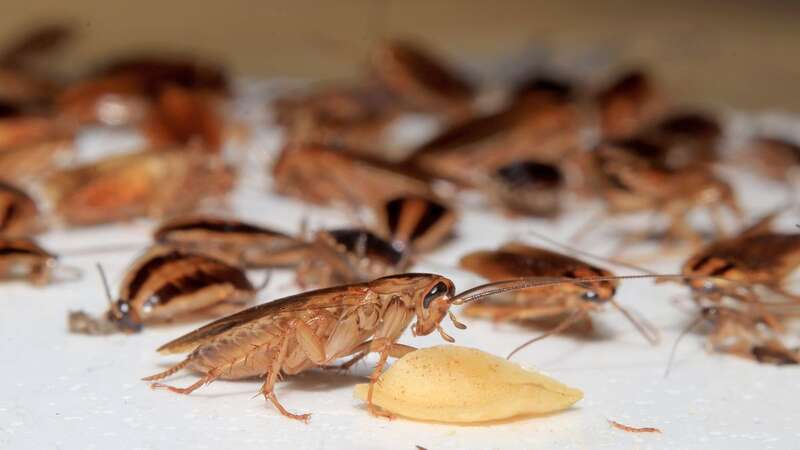

Brits heading for Spain this summer are being warned that they could face new plagues of genetically hardened cockroaches thanks to climate change.
The alert was raised by the a Spanish environmental organisation which says the insects will emerge in their masses this summer, terrifying and revolting tourists in the process. Anecpla (National Association of Environmental Health Companies) warned bars, restaurants and hotels to take urgent action if they spot any early signs of cockroach plagues.
Experts believe the surge in the pests is due to increasing temperatures and the hot months extending further into the year than before. "A summer of significant cockroach infestations is approaching," said general director of the Anecpla, Jorge Galván. "The increase in temperatures as a result of climate change is causing insects like bedbugs or cockroaches, in this case, exponentially accelerate their life cycle."
Has your hotel room been infested with bugs? Email us at webtravel@reachplc.com
 Anecpla says it is scientifically proven that from 28C cockroaches multiply their reproduction speed (AFP via Getty Images)
Anecpla says it is scientifically proven that from 28C cockroaches multiply their reproduction speed (AFP via Getty Images)Anecpla claims that it is scientifically proven that from 28C cockroaches multiply their reproduction speed. Increasingly strong EU rules banning the use of some pest killing chemicals is also making it trickier for exterminators to shift the bugs. "The heat arrives in the middle of spring and does not end until well into autumn, so cockroach populations have only expanded," said Jorge.
 Queen honoured in London New Year's fireworks before turning into King Charles
Queen honoured in London New Year's fireworks before turning into King Charles
He warned that random genetic mutations in cockroaches that have emerged in recent years are making them resistant to the biocide products that, until now, were being used for their control.
"Of course, environmental health professionals evaluate the cost-benefit that exists depending on the situation and we give preference whenever possible to physical and biological measures over chemical ones," said the Anecpla boss. "But when there is no other possible solution for the adequate control of a pest such as, in this case, cockroaches, its use is essential."
One of the greatest risks posed by cockroaches is the spread of harmful bacteria and viruses capable of transmitting diseases to people. This is a particularly big problem in the food industry.
Tourists who spot infestations should inform their accommodation of the issue. Infestations can be avoided by maintaining cleanliness, not leaving food out, maintaining order in the storage of products and using rubbish containers with tight lids.
Hotels and eating establishments should also make sure to carry out the above activities, with the addition of sealing any cracks or holes in walls and having regular maintenance by environmental health professionals.
Last year holidaymakers were horrified by a surge in bed bugs cases across parts of the UK and Europe.
Of all the common pest infestations in the UK, bed bugs are by far the most disruptive to everyday life. The night-time critters invade bedrooms to drink human blood in a vampiric manner, causing slight reddening of the skin, itchiness and mental anguish.
Last year the bed bug population had a big moment when their populations swelled in European capitals such as Paris, where writhing masses of the critters took over hotel rooms and were spotted bursting out of the padded seats of a public train. Bed bug season normally begins at the end of spring each year and ends at the beginning of the month in November, coinciding with increased summer travel.
Check out by signing up to our free weekly newsletter.